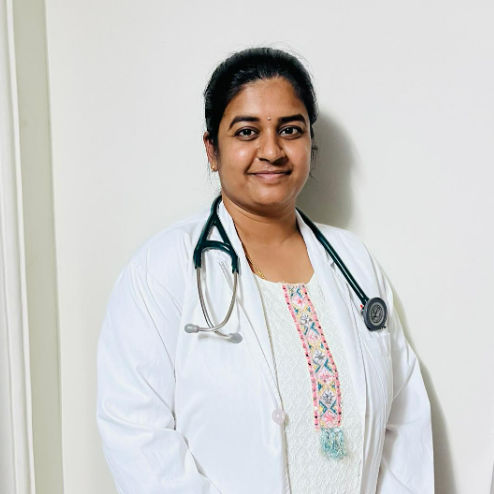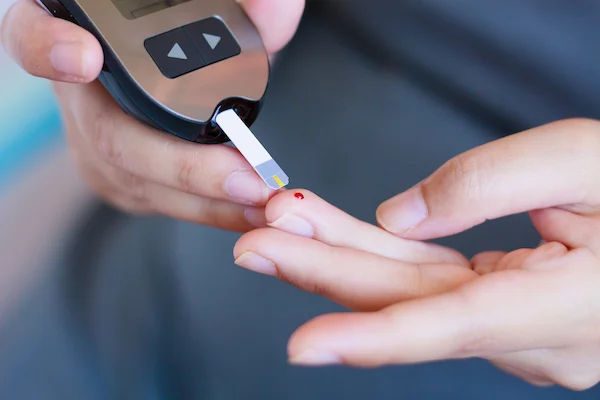Understanding Diabetes Symptoms and Treatments
Learn the causes, symptoms, and treatments for diabetes in simple terms. Discover how early diagnosis and lifestyle changes can help you manage diabetes effectively.

Written by Dr. Md Yusuf Shareef
Reviewed by Dr. Rohinipriyanka Pondugula MBBS
Last updated on 22nd Jul, 2025

Introduction
Diabetes is a common yet serious health condition that affects millions of people worldwide. If you or someone you know has been diagnosed with diabetes, it’s natural to have questions and concerns. The good news is that with the right knowledge and care, diabetes can be managed effectively. This article will help you understand diabetes, its symptoms, causes, and treatments in simple terms.
What is Diabetes?
Diabetes is a chronic condition that occurs when your body cannot properly regulate blood sugar (glucose) levels. Glucose is the primary source of energy for your cells, and insulin (a hormone produced by the pancreas) helps glucose enter these cells. In diabetes, either the body doesn’t produce enough insulin or cannot use it effectively, leading to high blood sugar levels.
There are three main types of diabetes:
1. Type 1 Diabetes: An autoimmune condition where the body attacks insulin-producing cells in the pancreas. It usually develops in children and young adults but can occur at any age.
2. Type 2 Diabetes: The most common type, where the body becomes resistant to insulin or doesn’t produce enough. It is often linked to lifestyle factors like obesity and inactivity.
3. Gestational Diabetes: Occurs during pregnancy and usually resolves after childbirth, but it increases the risk of Type 2 diabetes later in life.
Common Symptoms of Diabetes
Recognizing the symptoms early can help in timely diagnosis and management. Some common signs include:
Increased thirst and frequent urination: Excess sugar in the blood leads to dehydration, making you feel thirsty and urinate more often.
Unexplained weight loss: Without enough insulin, the body starts burning fat and muscle for energy.
Fatigue: Cells aren’t getting enough glucose, leading to constant tiredness.
Blurred vision: High blood sugar can affect the eyes’ lenses.
Slow-healing wounds: Poor circulation and nerve damage can delay healing.
Tingling or numbness in hands/feet: A sign of nerve damage (diabetic neuropathy).
Frequent infections: High sugar levels weaken the immune system.
If you experience these symptoms, consult a doctor for proper testing.
Causes and Risk Factors
The exact cause of diabetes varies by type:
Type 1 Diabetes: Likely due to genetic and environmental triggers (like viruses).
Type 2 Diabetes: Strongly linked to:
Obesity
Sedentary lifestyle
Unhealthy diet (high in sugar and processed foods)
Family history of diabetes
Age (risk increases after 45)
Gestational Diabetes: Hormonal changes during pregnancy can cause insulin resistance.
How Diabetes Affects Your Health
If left uncontrolled, high blood sugar can damage vital organs over time, leading to complications such as:
Heart disease and stroke
Kidney damage (nephropathy)
Vision problems or blindness (retinopathy)
Nerve damage (neuropathy)
Foot problems (poor circulation, infections, ulcers)
Skin conditions
The good news is that managing diabetes well can prevent or delay these complications.
Get Your Symptoms Checked By An Endocrinologist
Managing Diabetes: Lifestyle and Treatment Tips
Diabetes management involves a combination of medication, diet, exercise, and regular monitoring. Here’s how you can take control:
1. Healthy Eating
Choose whole grains, vegetables, lean proteins, and healthy fats.
Avoid sugary drinks, processed foods, and excessive carbs.
Eat smaller, balanced meals throughout the day to keep blood sugar stable.
2. Regular Exercise
Physical activity helps lower blood sugar and improves insulin sensitivity.
Aim for 30 minutes of moderate exercise (walking, swimming, cycling) most days.
3. Medication and Insulin Therapy
Type 1 diabetes requires lifelong insulin injections.
Type 2 diabetes may be managed with oral medications, insulin, or other injectables as prescribed.
4. Monitor Blood Sugar Levels
Regular testing helps track how food, activity, and medications affect your glucose levels.
5. Stress Management and Sleep
Stress and poor sleep can raise blood sugar. Practice relaxation techniques like yoga or meditation.
6. Regular Doctor Visits
Routine check-ups help monitor complications and adjust treatment as needed.
When to Seek Help
If you experience:
Extreme thirst, frequent urination, and fatigue (possible undiagnosed diabetes).
Very high or very low blood sugar levels (dizziness, confusion, fainting).
Signs of infection or slow-healing wounds.
Don’t hesitate to consult a doctor. Early intervention can prevent serious complications.
Take Charge of Your Health
Living with diabetes requires commitment, but with the right care, you can lead a healthy, active life. If you suspect you have diabetes or need guidance on managing it, Apollo 24|7 offers expert consultations and diabetes care plans tailored to your needs.
Conclusion
Diabetes is a manageable condition when detected early and treated with the right lifestyle changes, medications, and medical support. By recognising the symptoms and taking proactive steps, you can reduce complications and lead a healthier, more active life. Don’t wait, take charge of your health today.
Get Your Symptoms Checked By An Endocrinologist
Get Your Symptoms Checked By An Endocrinologist

Dr. Nithin Reddy Modhugu
Endocrinologist
6 Years • MBBS, MD (General Medicine), DNB (Endocrinology)
Hyderabad
Dr. Nithin's Endocrine Clinic, Hyderabad
(100+ Patients)

Dr. Gayatri S
Endocrinologist
4 Years • Suggested Qualifictaion- MBBS, MD (Internal Medicine), DM (ENDOCRINOLOGY)
Nellore
Narayana hospital, Nellore

Dr. Shiva Madan
Endocrinologist
10 Years • MBBS , MD (General medicine) , DM (Endocrinology)
Bikaner
Sushma diabetes and Endocrine center, Bikaner

Dr. Venkata Rakesh Chintala
Endocrinologist
8 Years • MBBS,MD( GEN MEDICINE), DM ( ENDOCRINOLOGY)
Krishna district
Sanjeevani Hospital, Krishna district

Dr. Arunava Ghosh
General Physician/ Internal Medicine Specialist
9 Years • MBBS,MD(GENL.MED.),DM(ENDOCRINOLOGY)
Kolkata
VDC Clinic, Kolkata



